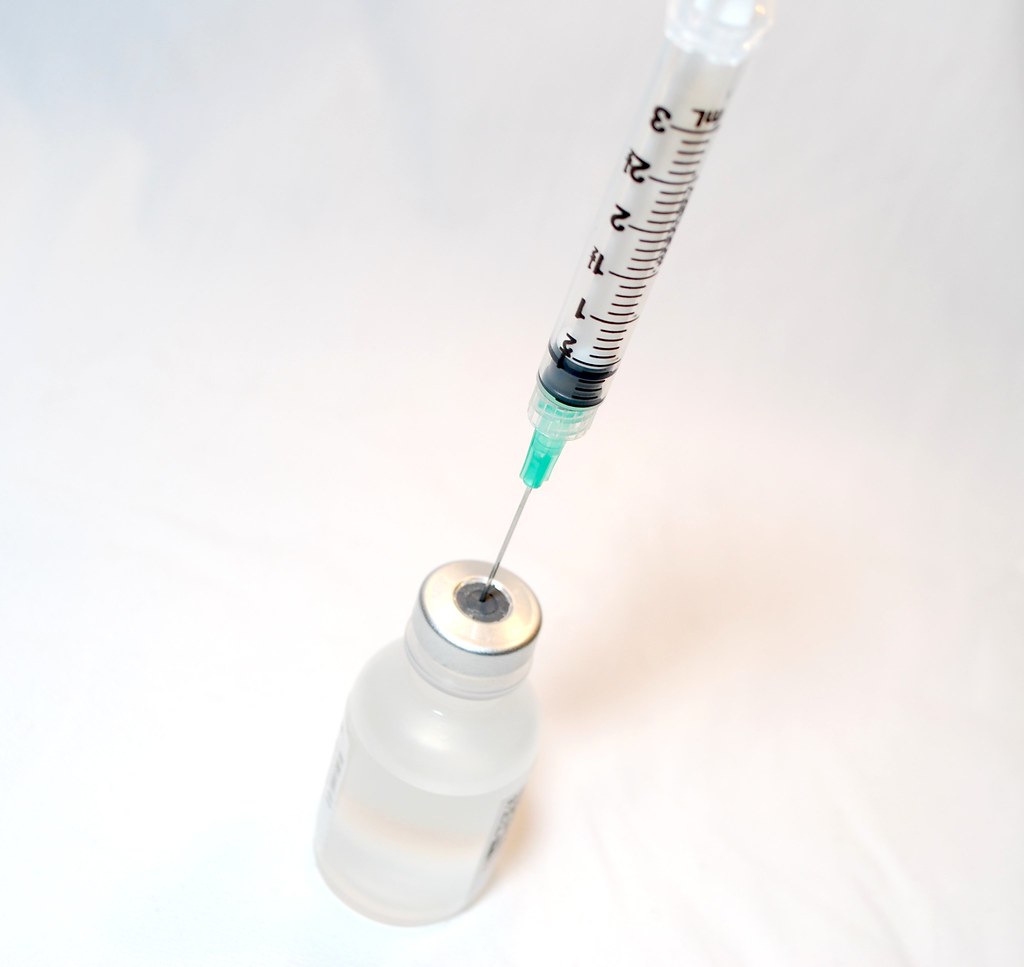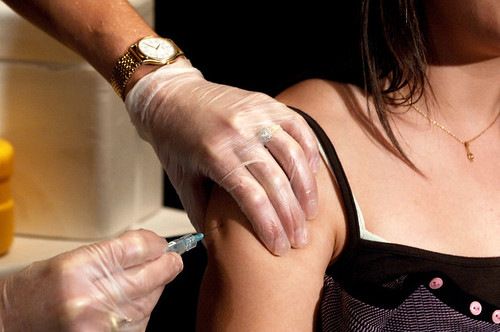 “Syringe and Vaccine” by NIAID is licensed under CC BY 2.0
“Syringe and Vaccine” by NIAID is licensed under CC BY 2.0
Many companies are racing to get a COVID vaccine approved by the Food and Drug Administration. With Pfizer and Moderna waiting to hear back, another company isn’t too far behind.
Drugmaker AstraZeneca with the University of Oxford announced that their vaccine appears to be efficacious. The efficacy of this particular vaccine depends on the dosage. The vaccine was just 62 percent efficacious when someone was given two doses. Due to an accident in the lab, some people only got a half dose and a full dose a month later. The half dose seemed to be more efficacious though at a 90 percent efficacy rate.
“It seems as though the half dose of the full dose gives you the bigger immune response end of in the population that they accidentally gave that shot to,” Andrew Bird, director of manufacturing at Merck pharmaceutical company, said in a phone interview. “It could just be a dosing issue and how primed your immune system is. That first shot typically primes the immune system and the second shot is what gives you the actual immunity going forward.”
AstraZeneca and Oxford’s vaccine costs significantly less than the others. In August, Moderna said it was charging between $32 and $37 per dose for its vaccine for some customers. Pfizer is reportedly charging $20 per dose for its vaccine, which is a lot less than Moderna, but AstraZeneca is going to charge approximately $3 to $4 per dose.
“The process makes it cheaper to produce, it’s easier. It runs on normal bio reactors, it uses cheaper materials to grow the cells. It’s just a matter of supply of the materials needed to run the AstraZeneca process versus what you need to do to run the Pfizer and Moderna processes,” said Bird.
 “Demo Against AstraZeneca March 08” by bedfordanimalaction is licensed under CC BY-NC-SA 2.0
“Demo Against AstraZeneca March 08” by bedfordanimalaction is licensed under CC BY-NC-SA 2.0
Transportation and distribution are also key. AstraZeneca and Oxford’s vaccine does not need to be frozen like Pfizer and Moderna’s vaccines, so that is another reason that it is so much cheaper.
“The AstraZeneca/Oxford vaccine only needs to be refrigerated, which should make it easier to deliver to areas that do not have easy access to freezers,” Dr. Karen Schneider, assistant professor of pediatrics at Johns Hopkins University, said. “The other two vaccines must be kept ultra-frozen and can only be outside of the ultra freezer for a few weeks, making the transportation and distribution of these vaccines very costly and challenging.”

“Oxford University” by Edmond Wells is licensed under CC BY-ND 2.0
Some experts said the FDA was unlikely to authorize the vaccine without more data, especially because fewer than 2,800 participants in the clinical trials received the smaller first dose that yielded such strong results. That is a much smaller sample size than in Pfizer and Moderna’s trials.
“When they examined two different ways of delivering the vaccine, they found that one regimen was substantially more efficacious. In a trial in Brazil with 10,300, participants were given two equal doses of the vaccine and were about 60% protected, while in a U.K. trial of 12,400, 2,800 participants were given a low-dose first shot and a regular-dose second shot. In this regimen the vaccination was found to be 90% protected,” Schneider said.
“This result is very promising but a sample size of 2,800 is very small and will need to be repeated with a much larger number of participants. A trial this small will not meet FDA requirements for approval of the vaccination. There is definitely more information to come as they begin larger trials with the ½ dose followed by full dose vaccination,” Schneider added.
Pam Cheng, an executive vice president at AstraZeneca, told reporters that if the company received regulatory authorization, it planned to have four million doses available in Britain by the end of the year. By the end of March, the company said, it would have at least 300 million doses of finished vaccine ready to distribute globally.




